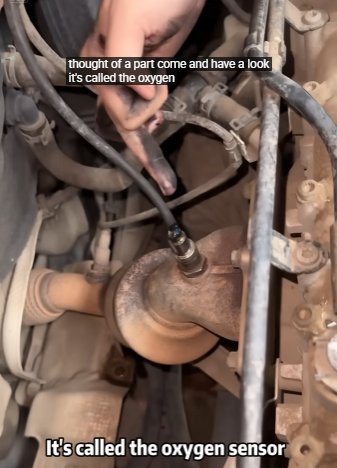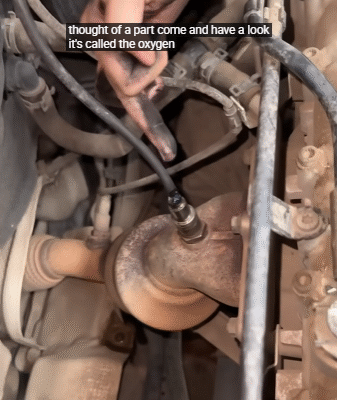
Car owners often encounter performance issues that seem mysterious at first—engine jitter, uneven idling, reduced acceleration, and unusual noises. One common culprit behind these problems is carbon deposits in the engine. When fuel does not combust completely, or when residues accumulate on engine components, carbon deposits form. These buildups not only reduce efficiency but also contribute to engine vibration, rough starts, and long-term wear. Solving engine jitter and addressing carbon deposits requires both prevention and corrective measures. In this article, we will explore what causes these problems, how to diagnose them, and effective ways to solve and prevent them.
Understanding Engine Jitter
Engine jitter, often described as shaking, rough idling, or vibration during acceleration, can be alarming to drivers. It is typically a symptom rather than a disease itself. The root causes may include:
- Carbon buildup on intake valves, fuel injectors, or combustion chambers.
- Faulty spark plugs that misfire due to soot or improper ignition.
- Fuel delivery problems such as clogged injectors or a weak fuel pump.
- Air intake issues caused by dirty air filters or a malfunctioning throttle body.
- Engine mount wear, which can exaggerate vibrations.
Among these, carbon buildup is one of the most frequent reasons for persistent jitter, especially in modern engines with direct fuel injection.
Why Carbon Deposits Form
Carbon deposits form when fuel does not burn completely. This incomplete combustion leaves behind soot and sticky residues that cling to vital engine components. Over time, these deposits harden and restrict airflow and fuel delivery. Common reasons include:
- Short trips and stop-and-go driving – The engine doesn’t reach optimal temperature, preventing complete combustion.
- Low-quality fuel – Cheaper fuels may contain additives or impurities that increase residue.
- Old or worn engine oil – Oil that leaks into the combustion chamber contributes to carbon formation.
- Faulty fuel injectors – They spray unevenly, leading to poor atomization and incomplete burning.
- Direct injection technology – While efficient, it often leaves intake valves unwashed by fuel, making them prone to deposits.
As carbon accumulates, drivers notice reduced power, engine hesitation, higher fuel consumption, and jitter.

Symptoms of Carbon Buildup and Engine Jitter
Before addressing solutions, it’s important to recognize the signs that your car might be suffering from carbon-related issues:
- Rough idling or vibration while stopped.
- Hesitation or sluggish acceleration.
- Reduced fuel efficiency.
- Check engine light (misfire codes are common).
- Knocking or pinging sounds during acceleration.
- Hard starting, especially in cold weather.
If you notice two or more of these symptoms, carbon buildup and jitter are likely linked.
Step-by-Step Solutions
1. Use High-Quality Fuel and Additives
Fuel quality plays a major role in carbon buildup. Opt for reputable fuel brands with proper detergents. Occasionally using premium fuel can also help, as it often contains more cleaning additives. Fuel system cleaners or additives (poured into the tank) can clean injectors and combustion chambers. For mild deposits, this step alone may reduce jitter noticeably.
2. Perform a Professional Carbon Cleaning
When deposits are severe, DIY solutions may not be enough. Mechanics use methods such as:
- Walnut blasting – Crushed walnut shells are blasted onto intake valves to remove hardened carbon without damaging components.
- Hydrogen engine cleaning – Hydrogen gas is introduced into the intake, helping break down carbon deposits.
- Chemical intake cleaning – Special chemicals are sprayed directly into the intake manifold to dissolve deposits.
These services restore airflow and fuel efficiency, reducing jitter dramatically.
3. Replace or Clean Spark Plugs
Dirty spark plugs often misfire due to soot buildup. Replacing them with new, manufacturer-recommended plugs can smooth engine operation. If they are still within their lifespan but coated with carbon, cleaning them may help temporarily.
4. Inspect and Clean Fuel Injectors
Fuel injectors that are clogged or unevenly spraying fuel cause rough combustion. Ultrasonic cleaning or replacement ensures precise fuel delivery. Some mechanics perform an “on-car injector cleaning” with pressurized cleaning solutions.
5. Check and Clean the Throttle Body
The throttle body controls air entering the engine. When covered with carbon, it restricts airflow, leading to jitter and poor idling. Cleaning it with throttle body cleaner restores smooth airflow.
6. Change Engine Oil Regularly
Old engine oil can leak into the combustion chamber, increasing carbon formation. Regular oil changes using high-quality oil reduce residue and prolong engine life.
7. Drive Smartly
Occasional long drives at higher speeds (known as “Italian tune-up”) help burn off minor carbon deposits. Engines that rarely reach operating temperature or run mostly in city traffic tend to accumulate deposits faster. Allowing your car to run at highway speeds for 15–20 minutes occasionally helps keep the system clean.

Preventing Carbon Deposits and Jitter
Prevention is always better than cure. Here are effective strategies to minimize recurrence:
- Stick to a strict maintenance schedule – Change oil, spark plugs, and filters on time.
- Use recommended fuel – Avoid cheap, no-name stations where fuel quality is uncertain.
- Install catch cans (for direct injection engines) – These devices trap oil vapors before they reach the intake valves.
- Avoid unnecessary idling – Long periods of idling contribute to incomplete combustion.
- Perform periodic intake cleaning – Even before symptoms appear, preventive cleaning can extend engine life.
When to Seek Professional Help
While DIY methods like using fuel additives and cleaning throttle bodies are effective, severe jitter and hard deposits require professional treatment. If you experience persistent misfires, loud knocking, or engine warning lights, visit a qualified mechanic. Ignoring these symptoms risks long-term engine damage, which can be far more costly than early cleaning.
The Long-Term Benefits of Solving Jitter and Carbon Deposits
Addressing engine jitter and carbon buildup not only restores smooth driving but also ensures:
- Better fuel efficiency – Reduced consumption saves money.
- Extended engine life – Less wear on pistons, valves, and injectors.
- Improved performance – Smoother acceleration and reduced lag.
- Lower emissions – Cleaner combustion reduces pollution.
- Reduced repair costs – Prevents major failures that stem from neglect.
Investing in prevention and timely cleaning is a small cost compared to replacing major components like cylinder heads or catalytic converters.

Conclusion
Car engine jitter and carbon deposits are common issues, especially in modern engines designed for efficiency. While they can be frustrating, they are not insurmountable problems. By understanding their causes, recognizing symptoms early, and applying both preventive and corrective measures, drivers can restore smooth operation and prevent long-term damage.
The key lies in regular maintenance, quality fuel, and proactive cleaning. Whether it’s using fuel additives for mild cases or professional walnut blasting for severe deposits, tackling the issue promptly ensures that your car runs efficiently, quietly, and reliably. A jitter-free, carbon-free engine is not just about comfort—it’s about extending your vehicle’s life and enjoying every drive with confidence.



